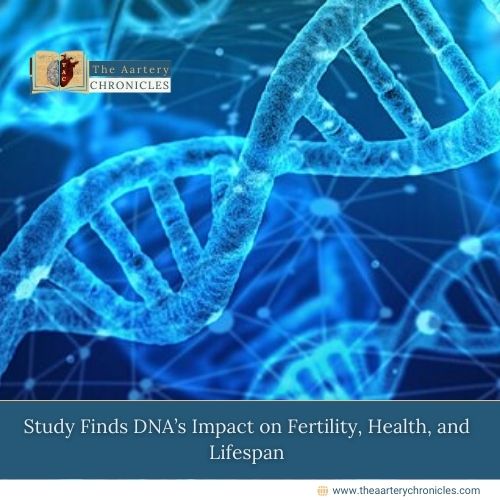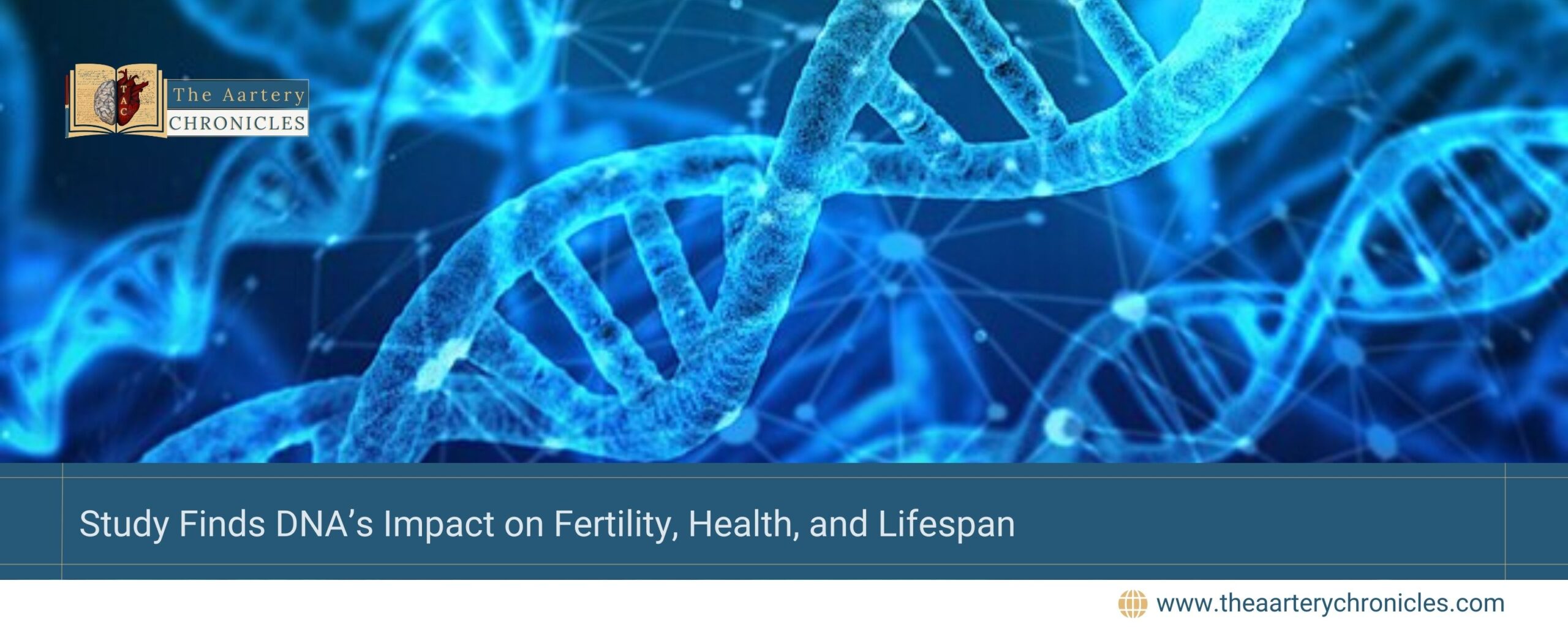

Study Finds DNA’s Impact on Fertility, Health, and Lifespan
Introduction
Our DNA, often described as the blueprint of life, plays a critical role in shaping various aspects of our health, including fertility, reproductive ageing, and even life expectancy. A recent review, led by scientists from the University of Oxford and the University of Iceland and published in Nature Aging, brings together groundbreaking research on how genetic variations influence reproductive traits and broader health outcomes.
Genetic Foundations of Reproductive Health
Researchers utilized the GWAS Catalog, an online database of Genome-Wide Association Studies (GWAS), to analyze 159 studies and identify 37 key genes linked to reproductive traits. These include age at first childbirth, timing of menopause, and hormone levels such as follicle-stimulating hormone (FSH) and testosterone.
One gene, FSHB, stood out due to its significant influence on reproductive health. It regulates processes like menstruation and menopause, demonstrating how intricately DNA connects fertility with ageing. Additionally, some reproductive genes were linked to rare genetic disorders, further highlighting the broader implications of our genetic makeup on health.
The Bigger Picture: Fertility, Health, and Longevity
The study uncovered surprising links between genes associated with reproduction and overall health. For example:
- ESR1 (estrogen receptor 1): This gene influences reproductive traits like puberty and menopause but is also associated with the risk of hormone-sensitive cancers, such as breast cancer.
- FTO (fat mass and obesity-associated gene): Known for its strong links to body mass index (BMI) and obesity, this gene also impacts multiple reproductive traits.
Interestingly, traits such as starting puberty earlier or experiencing later menopause can increase cancer risks while being associated with a longer lifespan. These findings reveal how reproductive health intersects with broader health issues like obesity, longevity, and cancer.
Insights into Male Fertility
While much of the focus in reproductive research has been on women, this review sheds light on the genetics of male fertility. Genes like DNAH2, which influence testosterone levels and sperm function, play a key role in male reproductive health.
Male fertility is often overlooked, but understanding its genetic basis can pave the way for better treatments and care for those facing challenges in starting a family.
Genetic Changes Across Generations
As individuals delay parenthood, their DNA accumulates new genetic mutations, known as de novo mutations. These changes, which can be passed to offspring, may influence the health and development of future generations. Understanding this process is essential for addressing age-related reproductive and developmental concerns.
Advancing Personalized Health Care
This comprehensive review emphasizes the importance of understanding the genetic factors behind reproductive health. By exploring how DNA influences fertility, ageing, and overall health, researchers aim to develop more personalized approaches to health care.
As Professor Melinda Mills, one of the senior authors, explains, “Our study provides insights into the shared genetic links between reproductive traits and broader health conditions, from BMI and cancer risk to behavioural traits. This knowledge can help improve reproductive health outcomes and overall well-being.”
Conclusion
The intersection of genetics, reproductive health, and longevity offers an exciting field of research. With these findings, scientists and medical professionals can better address issues like infertility, reproductive ageing, and associated health risks. This work not only advances scientific understanding but also holds promise for improving the quality of life across generations.
Source: Inputs from various media Sources
I’m a pharmacist with a strong background in health sciences. I hold a BSc from Delhi University and a pharmacy degree from PDM University. I write articles and daily health news while interviewing doctors to bring you the latest insights. In my free time, you’ll find me at the gym or lost in a sci-fi novel.









